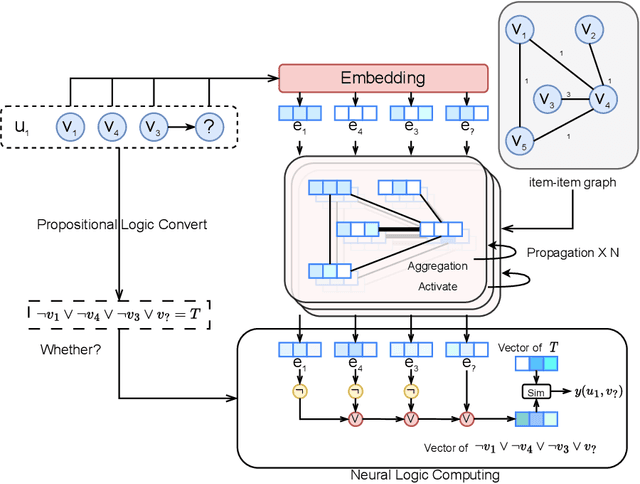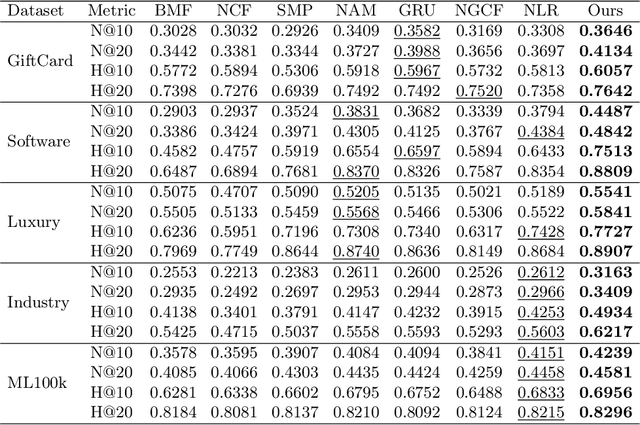Maonian Wu
Neuro-Symbolic Recommendation Model based on Logic Query
Sep 14, 2023



Abstract:A recommendation system assists users in finding items that are relevant to them. Existing recommendation models are primarily based on predicting relationships between users and items and use complex matching models or incorporate extensive external information to capture association patterns in data. However, recommendation is not only a problem of inductive statistics using data; it is also a cognitive task of reasoning decisions based on knowledge extracted from information. Hence, a logic system could naturally be incorporated for the reasoning in a recommendation task. However, although hard-rule approaches based on logic systems can provide powerful reasoning ability, they struggle to cope with inconsistent and incomplete knowledge in real-world tasks, especially for complex tasks such as recommendation. Therefore, in this paper, we propose a neuro-symbolic recommendation model, which transforms the user history interactions into a logic expression and then transforms the recommendation prediction into a query task based on this logic expression. The logic expressions are then computed based on the modular logic operations of the neural network. We also construct an implicit logic encoder to reasonably reduce the complexity of the logic computation. Finally, a user's interest items can be queried in the vector space based on the computation results. Experiments on three well-known datasets verified that our method performs better compared to state of the art shallow, deep, session, and reasoning models.
Neural-Symbolic Recommendation with Graph-Enhanced Information
Jul 11, 2023



Abstract:The recommendation system is not only a problem of inductive statistics from data but also a cognitive task that requires reasoning ability. The most advanced graph neural networks have been widely used in recommendation systems because they can capture implicit structured information from graph-structured data. However, like most neural network algorithms, they only learn matching patterns from a perception perspective. Some researchers use user behavior for logic reasoning to achieve recommendation prediction from the perspective of cognitive reasoning, but this kind of reasoning is a local one and ignores implicit information on a global scale. In this work, we combine the advantages of graph neural networks and propositional logic operations to construct a neuro-symbolic recommendation model with both global implicit reasoning ability and local explicit logic reasoning ability. We first build an item-item graph based on the principle of adjacent interaction and use graph neural networks to capture implicit information in global data. Then we transform user behavior into propositional logic expressions to achieve recommendations from the perspective of cognitive reasoning. Extensive experiments on five public datasets show that our proposed model outperforms several state-of-the-art methods, source code is avaliable at [https://github.com/hanzo2020/GNNLR].
 Add to Chrome
Add to Chrome Add to Firefox
Add to Firefox Add to Edge
Add to Edge